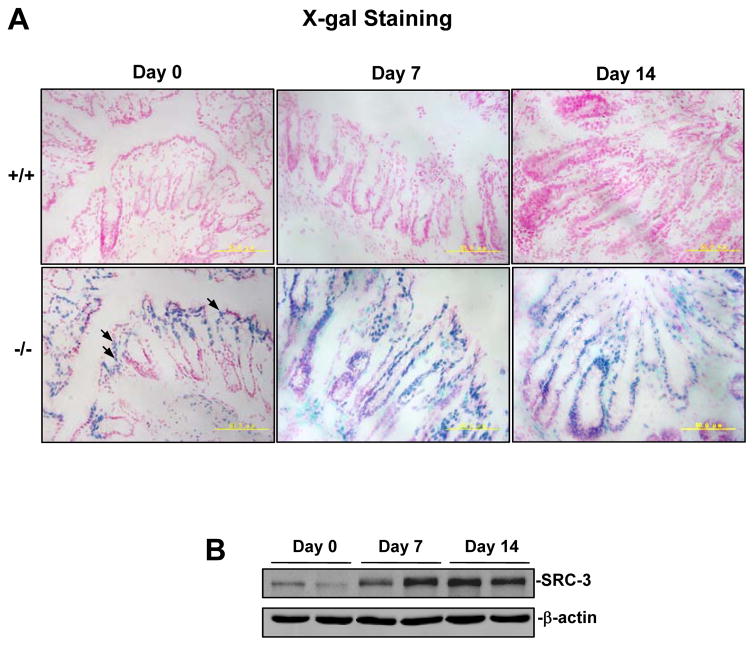Figure 1. SRC-3 is highly expressed in the colonic epithelial cells and upregulated in response to C. rodentium infection.
A, SRC-3 was highly expressed in the colonic epithelial cells and further upregulated in response to C. rodentium infection. Sections of frozen colon tissues from SRC-3+/+ (n=4) and SRC-3−/− mice (n=4) were stained with X-gal, arrows indicated the representative positive staining cells (blue). B, SRC-3 was upregulated in the colonic epithelial cells in response to C. rodentium infection. The protein levels of SRC-3 in the colonic epithelial cells of uninfected wild-type mice or wild-type mice infected with C. rodentium for 7 and 14 days were detected by Western blot analysis. Results are representative of three independent experiments.

